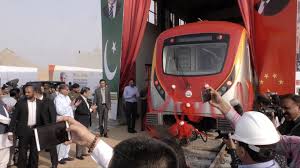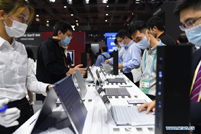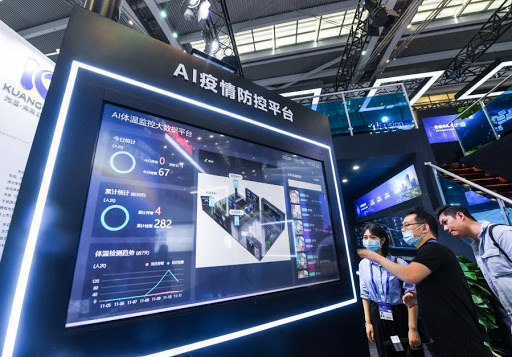Pakistani engineer builds career in China’s burgeoning rail transit industry

China Economic Net
Beijing: Rafiq Khan, 31, starts each day on the job checking the assembly process of tram carriages in the workshop.
As an electrical engineer at the CRRC Zhuzhou Locomotive Co., Ltd., Khan’s job is to process the technical documentation into final assembly lists.

Khan came to China to study in 2010 from Pakistan and got his bachelor’s and master’s degrees in electrical engineering at Northwestern Polytechnical University and Xi’an Jiaotong University respectively.
He joined the CRRC Zhuzhou Locomotive company after graduation and started working at the mass transit division.
“My personal growth is closely connected to China, and I want to participate more in the construction of China’s rail transit industry,” Khan said. “As an engineer, I am very proud to participate in so many subway and light rail projects.”
During his stay in China, he saw the rapid development of the country from the rail transit industry that he was most interested in.
“When I first came to China, many cities did not have subways. Now, the subway has become one of the most common and fastest means of urban transportation,” said Khan.
China will focus on promoting high-quality development during its 14th Five-Year Plan (2021-2025) period, according to a communique released after the fifth plenary session of the 19th Central Committee of the Communist Party of China in late October.
Khan said the company has played a leading role in this regard by providing advanced transportation equipment and solutions that bring greater convenience to people’s lives.
“What we need to do is to pursue high-quality development of the rail transit industry and meet the travel needs of more people by continuously improving our products and services,” said Khan.

Khan’s ideas are taking root. The company produced the train for the Orange Line, Pakistan’s first-ever metro train service, which started its commercial operation in October in Lahore, the second-largest city in the country.
The Orange Line adopts Chinese standards, technology and equipment. It is the first time that the whole chain of China’s metro train industry, including designing, manufacturing, construction, operation and maintenance, was exported to a country.
“China has become a strong force in the global rail transit industry and is sharing high-quality achievements with the world,” said Khan.
Products delivered by the company ranging from electric locomotives and inter-city trains to urban rail transit vehicles have been exported to over 20 countries and regions including South Africa, Malaysia, Austria and Mexico.
“I have great confidence in the future of our company. As China continues to promote the Belt and Road Initiative, our products can go further. The company’s ever-increasing capability of technological innovation will make it more competitive in the market,” Khan said.
Meanwhile, intelligent manufacturing and travel are also two major items on the company’s blueprint for future development.
Khan has decided to stay in China. He has drawn up a five-year plan to improve himself by more actively participating in the company’s major projects, enhancing expertise and practicing Chinese.
“Only by being committed to continuous learning can we keep pace with the rapid development of the country,” said Khan.





